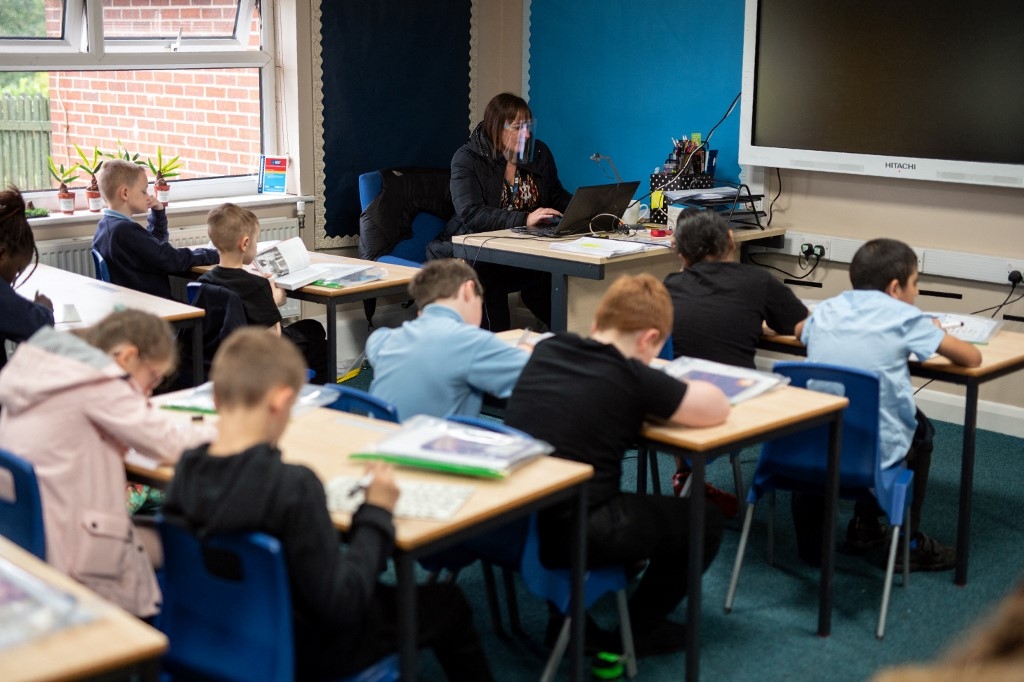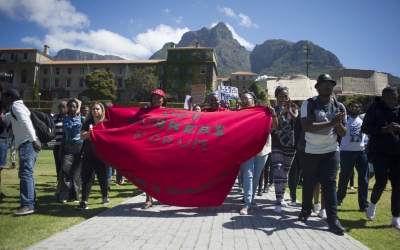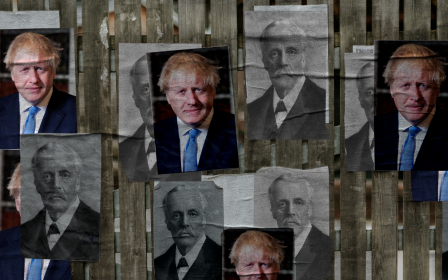Why British colonial history should be a compulsory subject in schools

First, some unfortunate truths: racism, like terrorism, can never be fully expunged. Tribalism and suspicion are fixed in human nature. Britain will never become a post-racial paradise.
With all of that said, I would still argue that if we could only allow ourselves to think about the true cause of this epidemic, we could make great strides towards bringing it under control.
By teaching us almost exclusively about the history of the white man, it relegates the rest of us to footnotes and marginalia
Racism is not - as some commentators insinuate - an issue solely confined to the Lumpenproletariat, the “wretched underclass” that doesn’t think or comprehend and is forever being duped by the cynical reactionist. The reason our black footballers get booed for taking the knee, or else racially abused for shanking a piece of leather, is because our concept of Englishness hasn’t evolved to include them.
How could it, when the history curriculum being taught in our schools is deliberately designed to eschew self-reflection? By teaching us almost exclusively about the history of the white man, it relegates the rest of us to footnotes and marginalia.
If you don’t believe me, ask yourself these questions: how much were you taught about the British Empire in school? Did the same textbooks that told you about Gavrilo Princip also have a chapter on General Reginald Dyer? Do you know how many people died in the Satiru uprising? When you read Mau Mau, do you start picturing handbags?
New MEE newsletter: Jerusalem Dispatch
Sign up to get the latest insights and analysis on Israel-Palestine, alongside Turkey Unpacked and other MEE newsletters
Common heritage
I ask these questions not from a place of academic snobbery, but to illustrate the extent to which the curriculum has failed us. By sanitising our curriculum from the history of empire, we make it seem as though the multicultural aspect of Britain happened by accident.
But there is a reason Bukayo Saka’s parents came to England and not to Norway. It’s because Nigeria was a British colony for more than a century. The Rashfords and the Sanchos are also children of empire and have made their homes in this country on the assumption of a common heritage that our institutions have subsequently erased from public memory.
And it isn’t particularly difficult to see why. By dissociating the British state from its imperial past, it is easier for reactionary politicians to pass racist laws. A brown-skinned Muslim woman, such as Shamima Begum, can be portrayed as an immigrant and have her citizenship revoked. Britons who are dual citizens of Commonwealth countries can be priced out of coming back through measures like the red list; and laws can be passed to dissuade minorities from voting.
All of this would be much more difficult if there was a sense of interconnectedness in British society; if we could conceive of colonial history as a shared burden, rather than an inconvenient distraction.
Then there is the issue of accountability - perhaps the emptiest word in our country’s public discourse. When our politicians decide to take us into wars like Iraq, they do so in the knowledge that history will absolve them. And really, why shouldn’t they? From the Boer concentration camps of colonial South Africa to the razing of entire villages in eastern Nigeria, the catalogue of atrocities committed by the British Empire has never been allowed to seep into the public consciousness.
Is it any wonder, then, that the UK is more nostalgic for empire than other ex-colonial powers? It is this nostalgia, coupled with a lack of historical accountability, that makes it easier for us to invade foreign countries today.
Nonsensical argument
Those who are against mandating the study of empire in the classroom tend to argue that the option to teach it already exists. The government, responding to calls for the syllabus to be diversified, has noted that the history curriculum “gives teachers and schools the freedom and flexibility to use specific examples” and that schools and teachers themselves can "determine which examples and topics to use”.
But how can teachers broach subjects if they feel ill-equipped? According to a recent survey of teachers carried out by the Runnymede Trust, 78 percent of those surveyed wanted training on teaching migration, and 71 percent on teaching empire.
Another counterargument is that teaching colonial history would create friction in the classroom and encourage students of colour to resent their white counterparts, but this is a nonsense for one simple reason: we aren’t the ones who have forgotten our common history. Our parents and grandparents have more than enough stories about the damage and depredations of the British Empire.
Journalist Ash Sarkar knows about the Bengal famine; her heart still breaks when England loses. MP Tan Dhesi is well aware of the massacre of Jallianwala Bagh; he still works hard to represent his constituents.
The people who need to be educated about the legacy of colonialism are the ones spewing hatred, not the ones being hated. Perhaps then, we may be able to come to terms with what it takes to coexist in modern Britain.
Measuring progress
Not only that, but it may also be a way of finding out how far we’ve come. History, after all, is as much about measuring progress as about learning from the past - as much about understanding who we are as who we have been. With that in mind, is it not heartening to think that a century after the Adubi War, when around 600 Yoruba people were killed by the British, a young Yoruba boy should step onto the pitch and put himself forward to keep England in the cup?
History is a nightmare from which we’re all trying to awaken, but by keeping our eyes shut, we only succeed in prolonging its horrors. Without making the study of empire a mandatory part of the syllabus, we will forever be plagued by the scourge of racism. It is the only way of teaching future generations how we all came to live here - and why we all have an equal stake in this society.
The views expressed in this article belong to the author and do not necessarily reflect the editorial policy of Middle East Eye.
Middle East Eye delivers independent and unrivalled coverage and analysis of the Middle East, North Africa and beyond. To learn more about republishing this content and the associated fees, please fill out this form. More about MEE can be found here.







